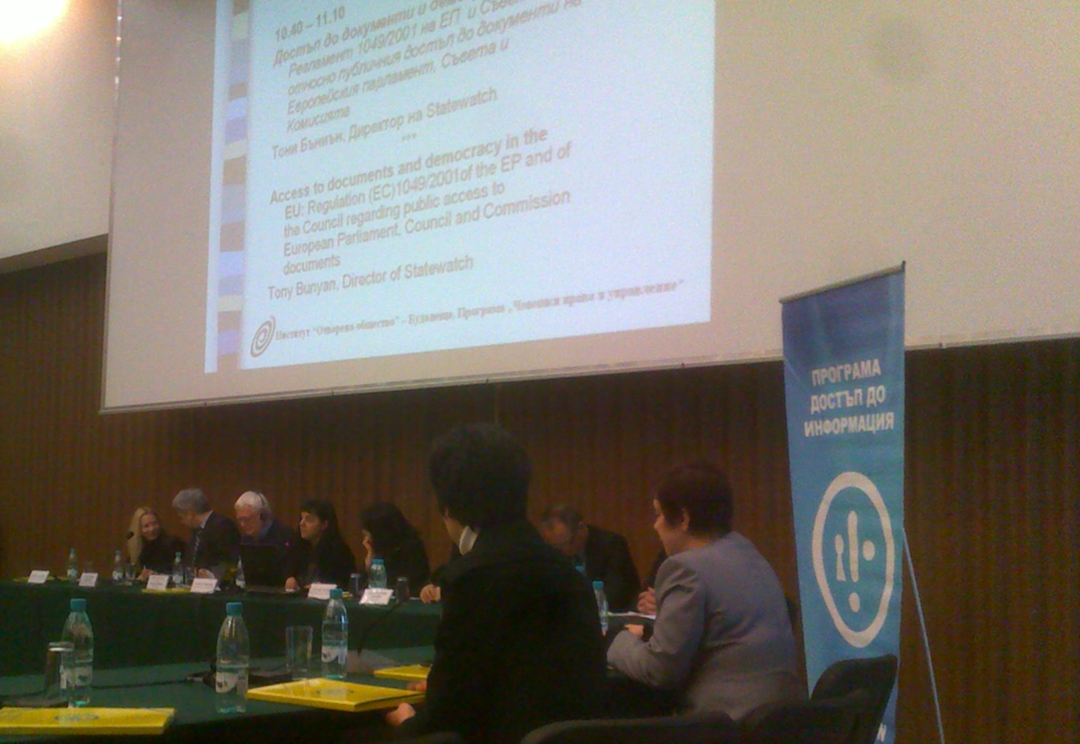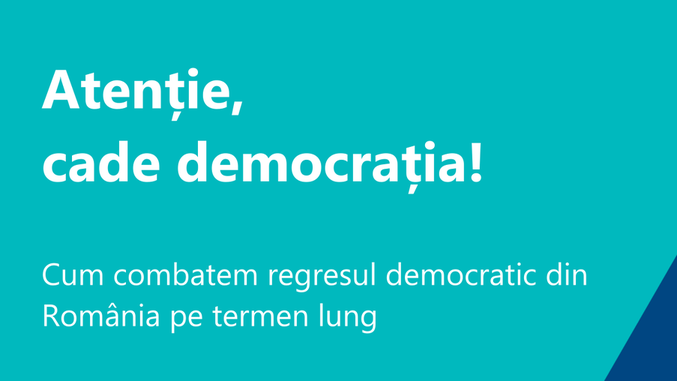Free access to information (FOI or A2I) is closely connected with my professional development, since I graduated from AUBG. Actually, it must’ve started over there, when us, concerned students, “waged war” against an allegedly corrupt, but definitely unresponsive, university administration. So, given my strong ties with both access to information and Bulgaria, I felt compelled to attend AIP’s conference on FOI litigation, just last Friday. [The trip from Bucharest to Sofia and back was an absolute nightmare, but I’ll tell you about it another time.] Went there with a question regarding litigation over classified information, and got quite a surprising answer…
Comparing the FOI situation between Romania and Bulgaria is no easy task—I’ll just give you a few hints:
- While the respective laws were adopted around the same time (Bulgaria, 2000; Romania, 2001), the institutions and organizations involved with FOI progress are so different! Though neither country has a full-fledged Information Commissioner (7th ICIC to take place in Canada, 4-5 October 2011), Bulgaria’s Ombudsman appears to be more into matters of good administration than the People’s Advocate (AvP) North of the Danube. [Vision, mission, priorities, responsibilities and accountability just pop in my mind, looking at the Bulgarian case with admiration…]
- While AIP is one strong organization, with a clear mission, successful at pushing FOI in Bulgaria, Romania has about a dozen organizations splitting the issue across the board. Personally, I agree more with the Romanian model, but I have to concede the Bulgarian example, litigation included, is by far more effective. [By the way, Moldova appears to emulate Bulgaria, rather than Romania 😉 ]
- While the quality and accessibility of information are slowly, but steadily, increasing in Bulgaria (as presented on Friday, April 15), Romania is going down the drain, at least from 2009 to 2011, though the situation could’ve been predicted as early as 2007 or 2009. [Romanians, however, are now being more concerned with putting bread on the table, after the opaque decisions of 4 consecutive Cabinets that pushed the country into a horrible economic crisis 🙁 ]
Let’s go back to my question, though: Directly associated with NATO accession, Romanians only have access to classified information if they get an ORNISS certificate. When only selected judges receive such clearance, there’s a risk that random allocation of cases is no longer possible; hence, plaintiffs (the parties that request the declassification of specific info) may run into an already biased judge. Similarly, when only selected prosecutors and barristers receive the same clearance, there’s a danger that investigations based on wire-tapping phone and/or internet conversations no longer follow the judicial principle on equality of weapons.
Well, Bulgarians solved this problem swiftly and effectively—by default, judges, prosecutors and barristers have access to any piece of classified information, in a closed session, in chambers. Some restrictions, of course, do apply in chambers, but there’s no vulnerability to impartiality or inequality! Before leaving for this conference, I checked on this situation with colleagues from the Romanian Helsinki Committee, the Center for Legal Resources, the Institute for Public Policies and the Romanian Chapter of Transparency International. Since they all agreed on the problem, I wish I could get these organizations to work together for replicating the Bulgarian solution in Romania… Wish us luck! 😉







